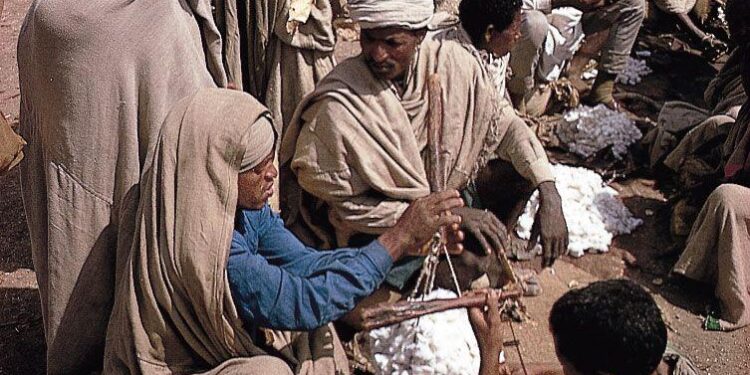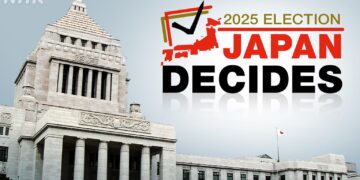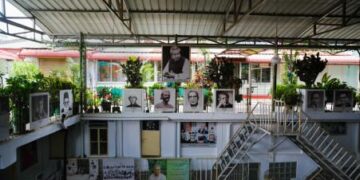Amhara National Movement Confronts Regional Turmoil Amidst Internal Struggles and External Challenges
In the midst of intensifying regional unrest and complex political hurdles, the Amhara National Movement (NAMA) faces a pivotal moment. Originating from aspirations for enhanced representation and self-governance, NAMA’s trajectory is now deeply intertwined with Ethiopia’s intricate sociopolitical fabric. The movement contends with internal factionalism while responding to mounting external pressures, influencing not only regional dynamics but also national cohesion. This analysis explores the multifaceted challenges confronting the Amhara region, examining how NAMA’s approach is molded by historical legacies, local grievances, and wider geopolitical currents as it strives to maintain influence amid growing instability.
Redefining Amhara Identity Within a Changing Regional Landscape
The quest for a unified Amhara identity has become increasingly complicated against a backdrop of shifting regional realities. Internal disagreements coupled with external forces have compelled the community to navigate an uncertain political terrain. Several critical elements shape this evolving identity:
- Historical Legacy: The deep-rooted cultural traditions of the Amhara people often risk being eclipsed by contemporary political disputes.
- Ethiopia’s Ethnic Federalism: The country’s federal system based on ethnicity has intensified divisions among groups, fueling competition and mistrust.
- Conflict-Induced Insecurity: Persistent clashes with neighboring regions threaten both physical safety and communal solidarity within Amhara society.
- The Rise of Identity-Based Politics: While empowering in some respects, identity politics have also sown discord within the community itself.
These factors have galvanized a vibrant movement dedicated to reclaiming pride in Amhara heritage. Community leaders and activists are actively promoting narratives that celebrate cultural richness while fostering unity amid turmoil. Innovative grassroots initiatives are engaging youth through educational programs that emphasize heritage awareness alongside contemporary social issues—efforts designed to build resilience against divisive influences. By nurturing this cultural renaissance, the Amhara people aim to assert their collective identity confidently despite ongoing challenges.
Internal Fractures: Implications for NAMA’s Cohesion and Effectiveness
The internal landscape within NAMA significantly shapes its capacity to address both local conflicts and broader national concerns. Various sources contribute to these divisions:
- Leadership Rivalries: Power struggles among prominent figures have fragmented organizational unity.
- Divergent Ideologies: Conflicting perspectives on autonomy levels and interethnic relations complicate consensus-building efforts.
- Sociopolitical Disparities: Differing priorities regarding economic development create tensions over strategic direction.
Although such internal discord risks weakening collective action against external threats, it simultaneously presents opportunities for reflection and reform within NAMA’s ranks. Current tensions involving neighboring communities alongside governmental policies necessitate adaptive strategies responsive to evolving realities.
A recent survey conducted among young members of the Amhara community reveals pressing concerns:
| Main Concern | % Reporting Concern |
|---|---|
| Cyclical Ethnic Violence | 80% |
| Pervasive Economic Disparities | 68% |
| Lack of Adequate Political Representation | 85% |
This data underscores an urgent need for unified approaches addressing shared anxieties while highlighting potential avenues for mobilizing grassroots support around common goals. Encouraging open dialogue across factions could strengthen solidarity essential for confronting external pressures threatening both regional stability and cultural integrity.
Strategies Toward Enhanced Unity and Resilience in Amhara Communities
To foster greater cohesion throughout the region, stakeholders should prioritize inclusive platforms encouraging intercultural understanding—such as facilitated roundtables, collaborative workshops, or culturally themed events aimed at dismantling entrenched stereotypes.
Simultaneously, empowering youth through leadership training programs focused on mediation skills can cultivate future peacemakers capable of bridging divides effectively.
Economic empowerment remains equally vital; establishing cooperative enterprises tailored toward local needs can stimulate job creation while curbing outmigration trends prevalent among younger demographics seeking opportunities elsewhere.
Infrastructure investments—including improved transportation networks connecting rural areas with urban centers—will bolster trade prospects enhancing overall economic vitality.
Support from government bodies alongside NGOs must ensure resource allocation aligns closely with community input during planning phases; such participatory approaches guarantee relevance while fostering ownership over development initiatives.
Collectively implementing these measures will lay groundwork not only for immediate conflict mitigation but also long-term resilience capable of weathering ongoing socio-political upheavals affecting Ethiopia at large.
For instance, similar grassroots economic models in East Africa , like cooperative farming ventures led by displaced youth in Uganda’s refugee settlements demonstrate how localized efforts can generate sustainable livelihoods amidst adversity.
Conclusion: Navigating Complex Challenges Toward Sustainable Progress
At this crossroads moment, NAMA confronts formidable obstacles stemming from both internal fragmentation and escalating external threats tied closely to Ethiopia’s volatile ethnic federalist framework.
How effectively it reconciles divergent interests internally will critically influence its ability to advocate robustly on behalf of its constituency amid competing national agendas.
The movement’s success or failure carries significant implications—not just locally but across Ethiopia—as it may set precedents impacting broader ethnic relations nationwide during this period marked by uncertainty yet ripe with potential transformation opportunities.
As observers watch developments unfold carefully over 2024–2025—with increasing international attention focused on Horn of Africa stability—the path chosen by NAMA will resonate far beyond immediate borders shaping future trajectories toward peace or further discord within one of Africa’s most diverse nations.














